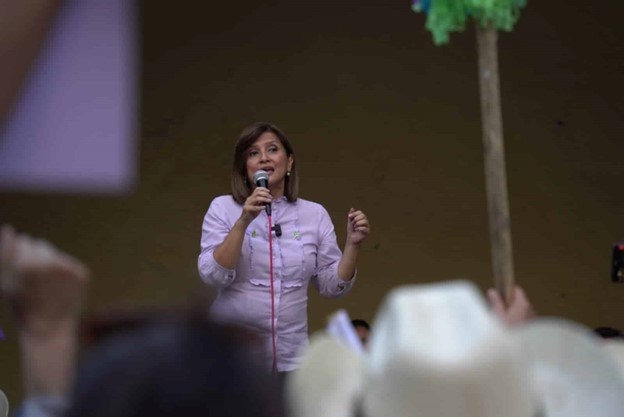“We’re confused by the outgoing president’s silence”

Karin Herrera, Guatemala’s vice president elect, rejects the Prosecution’s attacks. “The people already chose, they already determined who won. There was no fraud.”
HAVANA TIMES – Numerous countries and international organizations have publicly condemned the attempt by the Guatemalan Attorney General’s Office to prevent the upcoming inauguration of president-elect Bernardo Arevalo set for January 14th. However, one particular figure has remained notably silent in the face of this attack against democracy: outgoing president Alejandro Giammattei.
“We’ve felt a little confused at the lack of any forceful statement from him (Giammattei); a direct, conclusive statement about this election, which he knows was clear, transparent and followed all legal procedures,” stated Karin Herrera, Guatemala’s vice president-elect. She made these comments during an appearance on Nicaragua’s internet television news program Esta Noche.
On Friday, December 8th, the Guatemalan Prosecutor’s Office declared that the August 2023 elections – which Bernardo Arevalo and Karin Herrera won decisively – were not “valid,” due to alleged administrative irregularities of the Supreme Electoral Tribunal, which already endorsed their victory in accordance with Guatemalan law.
The Prosecutor’s Office now accuses Herrera, a biologist and teacher, of being involved in the 13-month occupation of the University of San Carlos (USAC) [April 2022 to June 2023]. They’ve already issued arrest warrants for another 27 people accused of having a central role in the university conflict. According to local media, the Public Ministry intends to criminally accuse the President-elect and his running mate of depredation of cultural property, illicit association, and influence peddling, based on their supposed participation.
Prosecutor Saul Sanchez accused them of “using the university as a trampoline for their political careers,” accusations that Herrera disputed in our interview.
The Guatemalan Prosecution has criminalized you, President-elect Bernardo Arevalo, and your Movimiento Semilla party, and is trying to annul last August’s elections. What are they accusing you of, and how do you respond to the Attorney General’s allegations?
I’ll speak about my own particular case. I have no specific details. They’ve implicated me in a case that happened at the University of San Carlos, and I’m accused because of the way I expressed myself at that time in the face of an injustice. I expressed myself freely at that time, regarding a process I considered unjust – that my colleagues who’d been elected at Guatemala’s College of Pharmacy and Chemistry were then not allowed to participate in an electoral process.
Does the Atto


